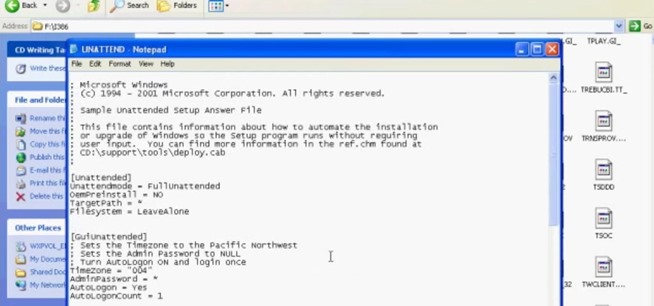Generate Rsa Public Key From Modulus Exponent C
 Jun 29, 2015 How to create a 3D Terrain with Google Maps and height maps in Photoshop - 3D Map Generator Terrain - Duration: 20:32. Orange Box Ceo 6,629,771 views. Mar 03, 2016 CS GO Key Generator 2015 100 UNDETECTABLE New HACK 2015 supports wide range of platforms, such as Windows and Mac OS X. Out tool has built in platform detector witch will detect your device version and will install right version for you. Dec 06, 2015 How to Get Free Steam Games 2016 - Working September 2018 - NEW UPDATED VID IN DESC! - Duration: 5:17. WMMFY 694,916 views. CS GO Activation Key Generator 2015 CS GO Activation Key Generator 2015. How to use: 1) Click 'Generate' 2) Use generated key to activate your game. Download: DOWNLOAD. Counter Strike Global Offensive Multihack v2.91.0. Lineage 2 Adena Hack v1.01 and Lineage 2 Enchanter v1.0.
Jun 29, 2015 How to create a 3D Terrain with Google Maps and height maps in Photoshop - 3D Map Generator Terrain - Duration: 20:32. Orange Box Ceo 6,629,771 views. Mar 03, 2016 CS GO Key Generator 2015 100 UNDETECTABLE New HACK 2015 supports wide range of platforms, such as Windows and Mac OS X. Out tool has built in platform detector witch will detect your device version and will install right version for you. Dec 06, 2015 How to Get Free Steam Games 2016 - Working September 2018 - NEW UPDATED VID IN DESC! - Duration: 5:17. WMMFY 694,916 views. CS GO Activation Key Generator 2015 CS GO Activation Key Generator 2015. How to use: 1) Click 'Generate' 2) Use generated key to activate your game. Download: DOWNLOAD. Counter Strike Global Offensive Multihack v2.91.0. Lineage 2 Adena Hack v1.01 and Lineage 2 Enchanter v1.0.
- Generate Rsa Public Key From Modulus Exponent Java
- Generate Rsa Public Key From Modulus Exponent Online
I have a private key components p, q, Dp, Dq, and QInv. I need to calculate the public key modulus and exponent. Modulus was super simple p.q, but exponent I can't figure out. Have searched all the articles and often found how to go opposite way - generating public private key once you pick the exponenet. How to generate public/private key in C#. Asymmetric cryptography also known as public-key encryption uses a public/private key pair to encrypt and decrypt data. In.NET, the RSACryptoServiceProvider and DSACryptoServiceProvider classes are used for asymmetric encryption.
| #include<string.h> |
| #include<openssl/rsa.h> |
| #include<openssl/evp.h> |
| #include<openssl/bn.h> |
| #include<openssl/pem.h> |
| // cheating, . ignoring deprecation warnings |
| #pragma GCC diagnostic ignored '-Wdeprecated-declarations' |
| unsignedchar *base64_decode(constchar* base64data, int* len) { |
| BIO *b64, *bmem; |
| size_t length = strlen(base64data); |
| unsignedchar *buffer = (unsignedchar *)malloc(length); |
| b64 = BIO_new(BIO_f_base64()); |
| BIO_set_flags(b64, BIO_FLAGS_BASE64_NO_NL); |
| bmem = BIO_new_mem_buf((void*)base64data, length); |
| bmem = BIO_push(b64, bmem); |
| *len = BIO_read(bmem, buffer, length); |
| BIO_free_all(bmem); |
| return buffer; |
| } |
| BIGNUM* bignum_base64_decode(constchar* base64bignum) { |
| BIGNUM* bn = NULL; |
| int len; |
| unsignedchar* data = base64_decode(base64bignum, &len); |
| if (len) { |
| bn = BN_bin2bn(data, len, NULL); |
| } |
| free(data); |
| return bn; |
| } |
| EVP_PKEY* RSA_fromBase64(constchar* modulus_b64, constchar* exp_b64) { |
| BIGNUM *n = bignum_base64_decode(modulus_b64); |
| BIGNUM *e = bignum_base64_decode(exp_b64); |
| if (!n) printf('Invalid encoding for modulusn'); |
| if (!e) printf('Invalid encoding for public exponentn'); |
| if (e && n) { |
| EVP_PKEY* pRsaKey = EVP_PKEY_new(); |
| RSA* rsa = RSA_new(); |
| rsa->e = e; |
| rsa->n = n; |
| EVP_PKEY_assign_RSA(pRsaKey, rsa); |
| return pRsaKey; |
| } else { |
| if (n) BN_free(n); |
| if (e) BN_free(e); |
| returnNULL; |
| } |
| } |
| voidassert_syntax(int argc, char** argv) { |
| if (argc != 4) { |
| fprintf(stderr, 'Description: %s takes a RSA public key modulus and exponent in base64 encoding and produces a public key file in PEM format.n', argv[0]); |
| fprintf(stderr, 'syntax: %s <modulus_base64> <exp_base64> <output_file>n', argv[0]); |
| exit(1); |
| } |
| } |
| intmain(int argc, char** argv) { |
| assert_syntax(argc, argv); |
| constchar* modulus = argv[1]; |
| constchar* exp = argv[2]; |
| constchar* filename = argv[3]; |
| EVP_PKEY* pkey = RSA_fromBase64(modulus, exp); |
| if (pkey NULL) { |
| fprintf(stderr, 'an error occurred :(n'); |
| return2; |
| } else { |
| printf('success decoded into RSA public keyn'); |
| FILE* file = fopen(filename, 'w'); |
| PEM_write_PUBKEY(file, pkey); |
| fflush(file); |
| fclose(file); |
| printf('written to file: %sn', filename); |
| } |
| return0; |
| } |
Generate Rsa Public Key From Modulus Exponent Java

